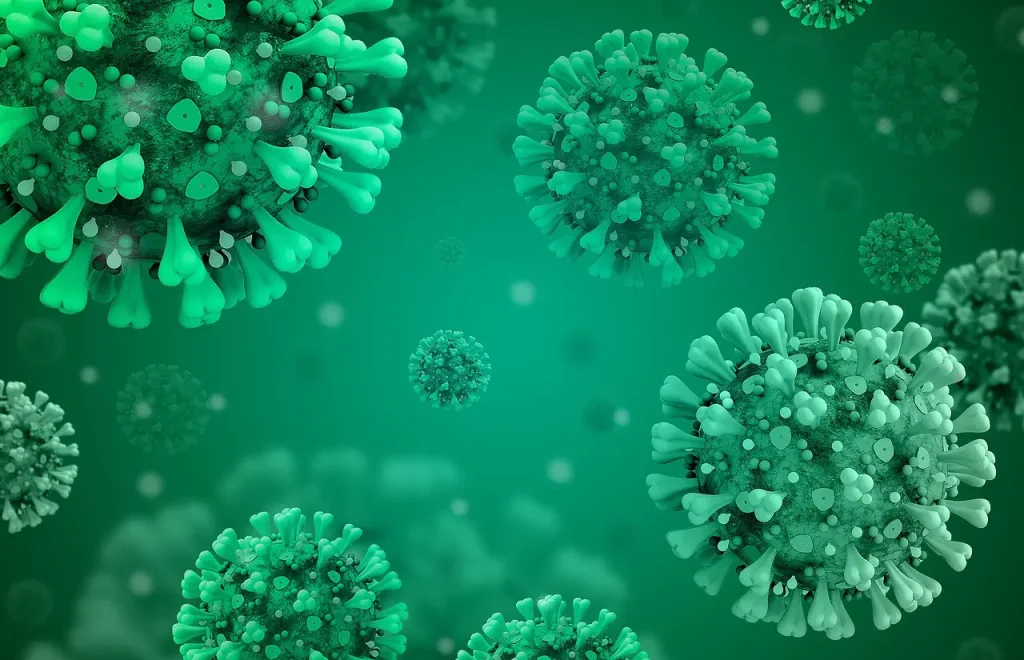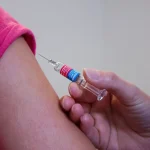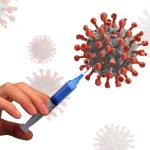In the past 24 hours, 577 new cases have been recorded, so the number of active cases in Croatia today is 2596. Among them, 1,055 patients are in hospital, of which 92 are on respirators. Fourteen people died. Epidemiologist Bernard Kaić said that the number of infections in Croatia is decreasing from week to week.
“These 577 cases are less than last week. The share of positives among those tested is also falling. However, these are still large numbers compared to spring. The daily incidence is 146 per 100,000. We are among the better in the EU; only four countries have a lower incidence. As for the counties, the lowest incidence of 14 days is in Istria County with 42 per 100,000, followed by Požega-Slavonia County with 63, and the highest in Split-Dalmatia County,” Kaić said.
He added that 655 side effects had been reported on the Pfizer vaccine and 17 on the Moderna vaccine to date. As he says, side effects were expected. Twenty-nine allergic reactions have been reported, but all have passed without any consequences.
Samples of the new variant taken at the end of January
Alemka Markotić talked about the British variant of coronavirus that appeared in Croatia today. The first three cases have been confirmed.
“Colleagues from the Croatian Institute of Public Health (HZJZ) said they had preliminary results for eight patients, but they will inform the public in more detail. As for the samples we confirmed, one is a 50-year-old man from the Family Medicine Practice; the clinic has no data on his clinical state. There is a 3,5-year-old child, who had symptoms of the gastrointestinal tract, fever, vomiting, and diarrhea, and the parents are positive. A third is a 34-year-old man, and we have no information about him,” Markotić said.
She added that what they found was no surprise and that it was a matter of time when the new variant of coronavirus would be detected in Croatia. It was good that a significant number of new patients connected with the new variant could not be seen. However, she stressed that we still need to be very responsible, vigilant, and adhere to measures.
Kaić said that there is no data for these eight positive cases yet. It is only known that the samples were taken in the second half of January. They still do not know all the contacts of the infected with the new strain, but they have been working on it since early morning. They will undoubtedly be required to be in self-isolation.
“Those eight infected are from Zagreb, Sisak, and Vukovar-Srijem County. Samples were taken in the second half of January. That means we had a new strain back then. We need to do everything we can to reduce the spread of the new variant so as not to increase the incidence,” Kaić said.
Beroš: All three types of vaccines are effective
“It is crucial to detect the new variant’s existence by sequencing methods we have undertaken, and it is important to respond epidemiologically to new challenges. The whole of Europe is on alert. This is an opportunity to show responsible behavior once again. Our vigilance has created a good basis for a new fight. We will have to balance between milder and stricter measures,” said Health Minister Vili Beroš.
As for the vaccines, Beroš said that the vaccination with the AstraZeneca vaccine has begun. The vaccination with Pfizer and Moderna will continue, and the second phase will start when it is the turn of senior citizens and people with comorbidities.
He stressed that none of the vaccines in Croatia have age restrictions. Regardless of the effectiveness’ percentages, all three vaccines in the 100 percent range prevent the onset of the most severe forms of the disease, hospitalization, and death.
“We use what is available, and these are three types of vaccines that the whole world considers to be effective,” Beroš said.
The most vulnerable are a priority in vaccination
Journalists asked the Civil Protection Headquarters about the University of Zagreb rector Damir Boras, who was allegedly vaccinated “before his turn”, which caused a great deal of public attention.
“I immediately asked for a statement, and I condemn the vaccination before your turn. We have adopted a vaccination plan. The deprivation of the rights of the most vulnerable is not acceptable. I will wait for a response from the Rebro Clinical Hospital Center, and we will see. I appeal to all those who carry out vaccination to do it according to the vaccination plan,” said Beroš.
When asked how they decide what to do with unused doses, Kaić said there is no prescribed protocol.
“A common-sense protocol is to vaccinate someone interested rather than throw away the vaccine, especially when we don’t have enough vaccine, regardless of who is vaccinated to get another dose when needed. Likewise, suppose it is possible to start vaccinating in dispensaries, and somewhere the last user of a nursing home or the last health worker in the area has not yet been given. In that case, the first phase of vaccination inevitably overlaps with the second. Where would we come from not giving the vaccine we have. Decent quantities have arrived this week; next week, they are coming again. If we do not give the vaccine until the first phase is resolved, it would be harmful to delay vaccination,” said Kaić.
Beroš said he did not believe the rumors that people were getting vaccinated before their turn. He said he condemned such actions. “We are all equal, but the most vulnerable must have priority,” he said.
Božinović: New decision on measures to protect both people and economy
When asked by journalists about how a new variant of coronavirus entered Croatia, Alemka Markotić answered – by human migration.
“We will try to find out in detail where they were imported from. But viruses migrate along with humans. It would not be like that if there were no such migrations. It is a variant that is spreading faster. It is among us, and we must adhere to the measures in force to prevent the spread, such as in Ireland, Portugal. The whole world is in fear of spreading. If the health care system is burdened, the number of dead will also increase. In Germany, they are proposing even stricter measures,” Markotić said.
Interior Minister Davor Božinović commented on the easing of measures.
“We have to pay attention to the new strain, but that is not a reason to panic. We have to monitor the situation in European countries. Each country reacted differently, and all this happens when vaccination does not go as planned. We must also take into account the forecast announcing low temperatures. So, we will take all this into account,” Božinović said.
He added that a new variant of the coronavirus has been present in Croatia since January 20, 2021, since the numbers of newly infected people have been falling.
“The new variant will also be discussed at the Scientific Council to make a decision that will protect people, but also which must be rational for economic activities,” Božinović said.
A new strain of coronavirus will be detected by random testing, and Markotić said they would also react as soon as they notice that someone has come from abroad or that there are more hospitalized or infected in an area. It takes about two weeks to complete the whole process because a regular PCR test does not do it, but the process is more complicated.
Sources: Index.hr, Jutarnji list
To read more news about coronavirus in Croatia, follow TCN’s dedicated page.











